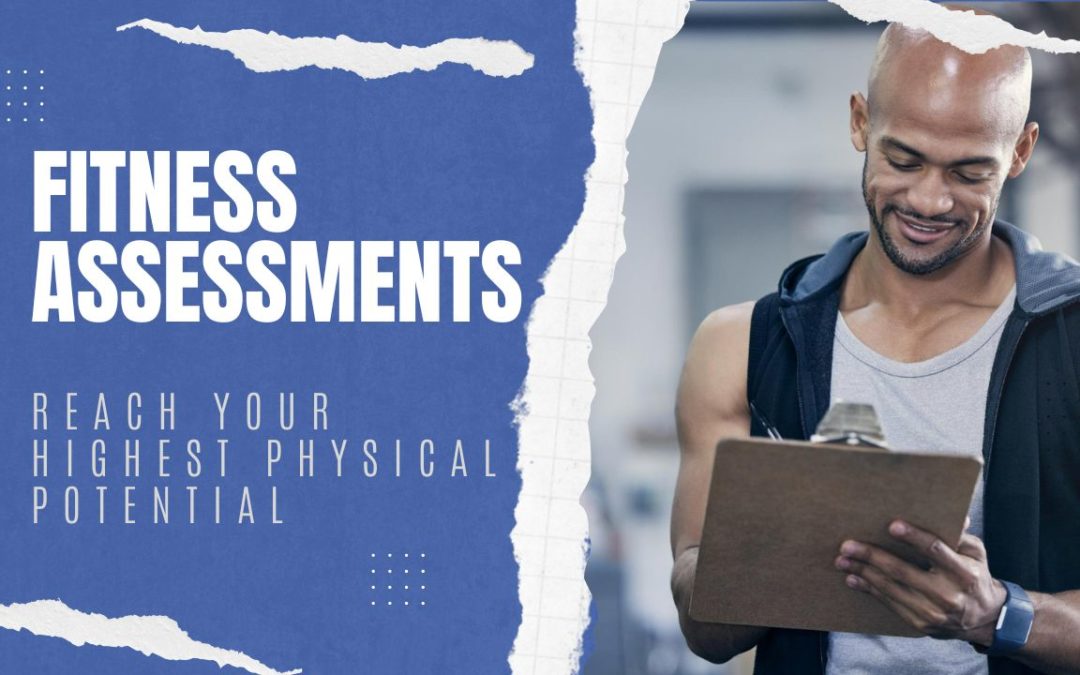Working out and keeping yourself active is a great way to maintain an overall healthy life. Everyone’s body is different and may require setting different fitness goals and lifestyles to reach peak conditions. To help you understand your current health and fitness levels, a thorough fitness assessment can be conducted by trainers and health experts to help determine baseline measurements. This fitness assessment can also be used to motivate clients and make useful training recommendations for routine workouts. The experienced team at Body Smart Health & Fitness can help assess sports injuries and provide treatment options for you. Whether you’re looking to recover from an injury, manage chronic disease, or improve your strength and flexibility, we can help!
At BodySmart Health & Fitness, we provide a variety of fitness assessments for both general use and for clients in specific age groups. We are strongly interested in helping our clients improve the quality of their life, work, and play, helping them regain their functionality and improve their overall fitness. In addition to our advanced gym equipment, we also offer our clients physiotherapy, rehabilitation, chiropractic, and health education to complement their active lifestyles.
Fitness assessments are a great way to get started toward a health composition and can serve as a useful guide. Here are the key elements of a detailed fitness assessment and how they can be beneficial for you.
What Are The Basics Of A Fitness Assessment?
A fitness assessment is essentially a test or measurement conducted by a fitness professional to uncover current fitness or health information about a person. These assessments can be used to measure biometric information (related to the physical body), test out different components of fitness, assess mobility, stability, and balance, and evaluate specialized skills. It may also be used to discover what your current level of fitness is and a person’s power or agility skills.
Client questionnaires are often used in fitness assessments to collect personal or additional health information needed for a diagnosis. Many fitness assessments test out different body components such as cardiorespiratory endurance, muscular strength and endurance, flexibility, and body mass index (BMI) among other factors. Before conducting a fitness assessment, there are a variety of conditions to consider for each new client.
First, the age of a person can help determine the intensity and level of fitness programs they can be exposed to. The average age group for a normal workout routine is people between the ages of 18-64 years who exercise for a minimum of 150 minutes throughout the week. For younger people, at least 60 minutes of daily moderate to intense workout routines is recommended.
Injury history is another factor that should be accounted for in a fitness assessment. Health professionals and trainers should take extra precautions not to re-aggravate serious injuries and point this out in the questionnaire.
Lastly, we always learn what our client’s goals are and can help them cut weight down or build up muscle through customized fitness plans. By taking these factors into account, we can use them to create an excellent fitness assessment plan for your benefit.
What Makes Up A Good Fitness Assessment?
A good fitness assessment is detailed, transparent, and proactive in helping someone reach their health goals. Some of the major components are often simple steps that can be discussed between a trainer and a client.
A general health evaluation should be implemented in order to be transparent about a person’s current health conditions. Afterwards, the planned workout routines should positively affect your body composition and ensure your BMI contains high non-fat mass and less body fat overall. Your body’s cardiovascular endurance should also be examined, as a healthier heart and lungs will help you last longer during aerobic fitness exercises. They can also help you do more sit-ups, push-ups, and other core exercises.
Muscle strength and endurance is another good component of a fitness assessment. The parts of the body that are targeted in an assessment can be the center of focus for strength and endurance tests. Determining how long the body can hold up during exercise is important to your overall fitness plans.
Joint flexibility is another aspect of a fitness assessment that should be strongly considered. It is a vital part of exercise and zeroes in on the connective tissue and muscle in a person’s different body joints. Stretching exercises are often utilized to test flexibility and improve joint mobility and movements for your lifestyle.
How Do You Prepare For A Fitness Assessment?
Before undergoing a good fitness assessment, there are a few things you will need to prepare beforehand.
First, avoid strenuous exercise for 24 hours prior to the assessment. Make sure you’re well rested and are wearing appropriate clothing (e.g. shorts/track pants, T-shirts, etc) for the occasion. Remove any restrictive jewelry, watches, bracelets or earrings that may get caught in exercise equipment.
After identifying and making sure you don’t have any long-term or consequential injuries or illnesses, we will ask you to warm-up prior to the fitness assessment. Afterwards, you can cool down appropriately by sitting or lying down. By following these preparations, we’ll be able to properly gauge your current fitness levels and provide recommendations to improve your health going forward.
Contact us at Body Smart Health & Fitness today by calling 604-888-1177 to book an appointment with our team. Work with us now to receive a thorough fitness assessment that identifies key areas of improvement. We’ll provide an individualized program with the right exercise routines and nutritional needs that work to your advantage.
